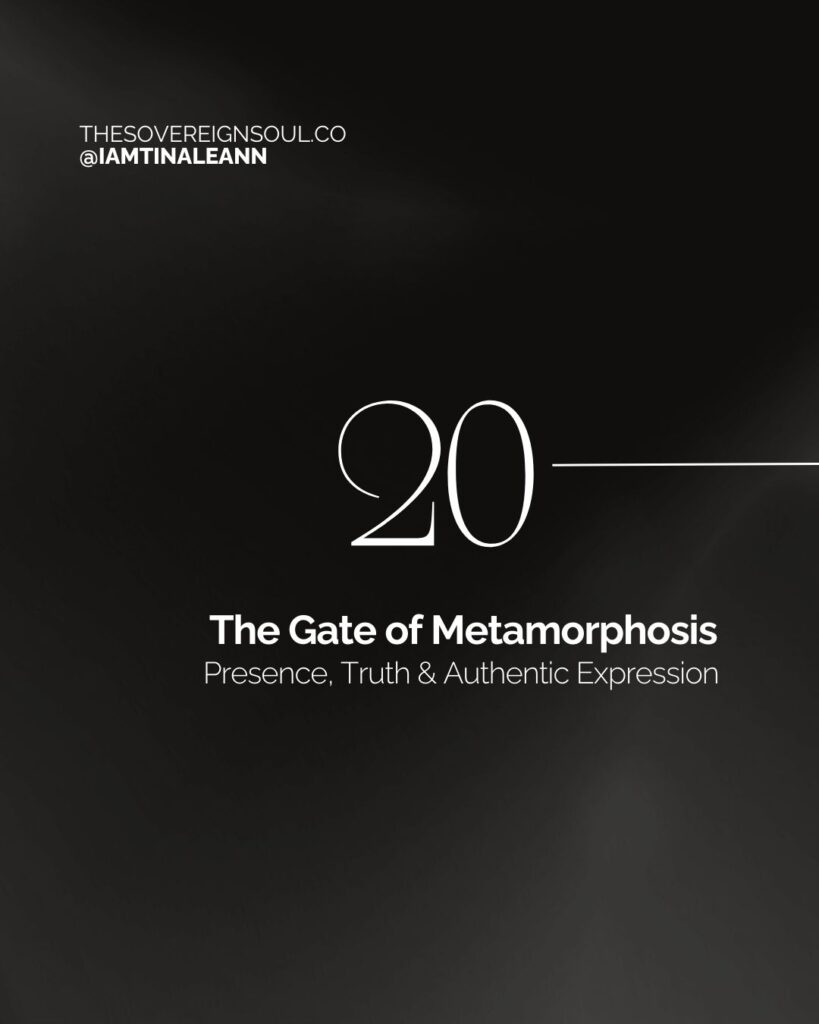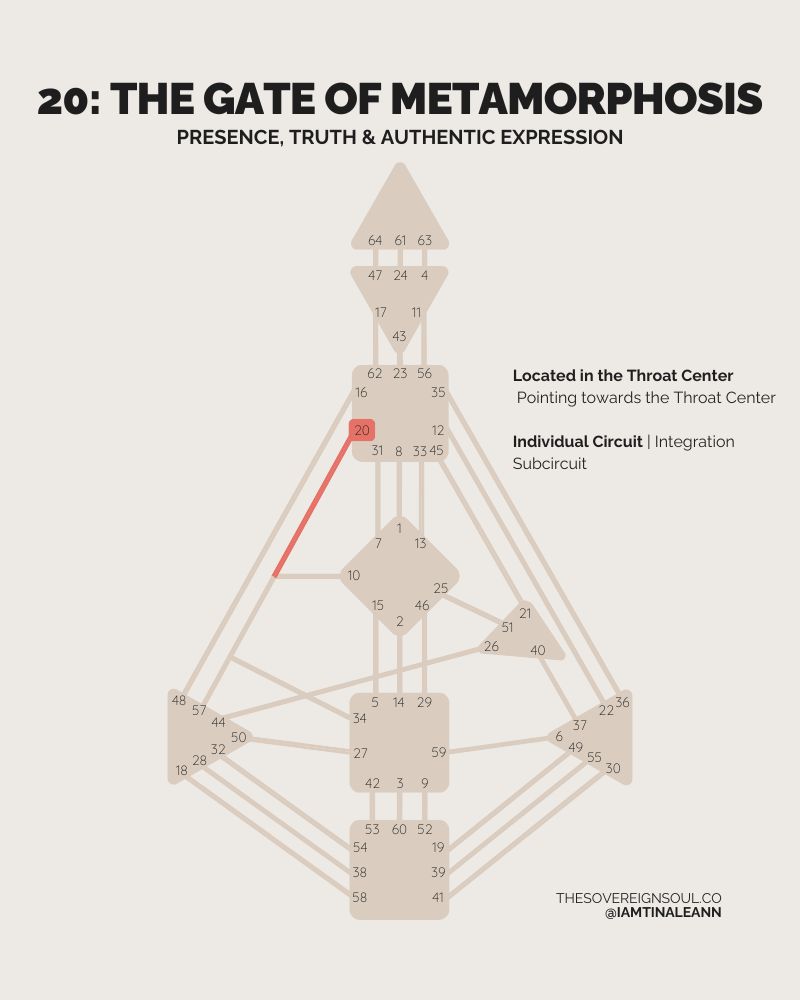Gate 20 in Human Design: The Gate of the Now – The Power of Presence & Authentic Expression
Have you ever met someone who seems completely absorbed in the present moment, speaking and acting with a sense of immediacy that captivates everyone around them? Someone who doesn’t dwell in the past or worry about the future but instead lives fully in the NOW?
That’s the energy of Gate 20 – The Gate of the Now, one of the most powerful and magnetic energies in Human Design.
This gate is all about pure presence, instant self-expression, and responding to life in real-time. It’s not about planning ahead or reflecting on the past—it’s about being fully engaged in the moment and speaking truth as it arises.
Gate 20 is located in the Throat Center, the center of communication and manifestation. This means it carries:
Instantaneous Awareness & Expression → The ability to act or speak in the moment with full presence.
Magnetic Presence → People with this energy often draw others in with their authenticity.
Alignment with Truth → The ability to express what is real and true in real time.
Resistance to Planning & Small Talk → This energy isn’t about strategy or rehearsed speeches—it’s about what’s alive right now.
Gate 20 is involved in three powerful channels:
34-20 (The Channel of Charisma) → Direct Sacral-to-Throat connection for instant manifestation.
57-20 (The Channel of The Brainwave) → Deep intuitive awareness and immediate insight.
10-20 (The Channel of Awakening) → Living as a fully expressed, authentic self.
In all these connections, Gate 20 serves as the voice of the present moment, allowing deep truths to be spoken and embodied.
The Energy of Gate 20: Speaking & Acting in the Now
1. The Gift of Presence
Gate 20 is a master of being fully present. People with this gate often:
- Are deeply engaged in whatever they’re doing.
- Speak from a place of truth, not overthinking.
- Have an infectious energy that makes others feel alive.
- Get frustrated by conversations that aren’t real or relevant.
✨ Ask yourself: Am I fully present in what I’m doing, or is my mind elsewhere?
2. Instant & Authentic Expression
Gate 20 isn’t about overanalyzing or filtering—it’s about saying and doing what feels true in the moment.
People with this energy:
- Have a spontaneous and raw way of expressing themselves.
- Are often seen as bold, direct, and charismatic.
- May struggle when forced to plan, rehearse, or strategize too much.
This is why many great speakers, performers, and leaders have Gate 20—it allows them to channel energy in the moment, making them incredibly engaging.
✨ Ask yourself: Am I letting myself express freely, or am I holding back my truth?
3. Struggles with Future Planning & Small Talk
Because Gate 20 is so focused on the present, it often struggles with:
- Long-term planning & rigid schedules – This energy thrives when it can respond in the NOW.
- Superficial or forced conversations – It wants to talk about what’s real and relevant, not make small talk.
- Feeling misunderstood – Because it speaks and acts without a filter, others might not always be ready for its truth.
✨ Ask yourself: Am I allowing my energy to flow naturally, or am I forcing myself into structures that don’t fit?
How to Work with Gate 20 Energy
Honor Your Presence – Let yourself be fully engaged in whatever lights you up.
Express Your Truth in the Moment – Trust that what you say and do in real time carries power.
Allow Flexibility in Your Life – Your energy thrives in flow, not rigid schedules.
Don’t Force the Future – Instead of over-planning, trust that clarity will come when the moment is right.
The Power of Living in the NOW
Gate 20 is pure presence, truth, and charisma in action. It’s about:
- Being fully engaged in life
- Speaking and acting from an authentic place
- Trusting that the right words and actions will arise in the moment
- Living in flow instead of forcing plans
If you have this gate, embrace your gift of presence and instant expression—it’s what makes you so magnetic and impactful.
So, the question is: Are you allowing yourself to live fully in the NOW?
Feeling this energy? Drop a comment and share how Gate 20 shows up in your life!








